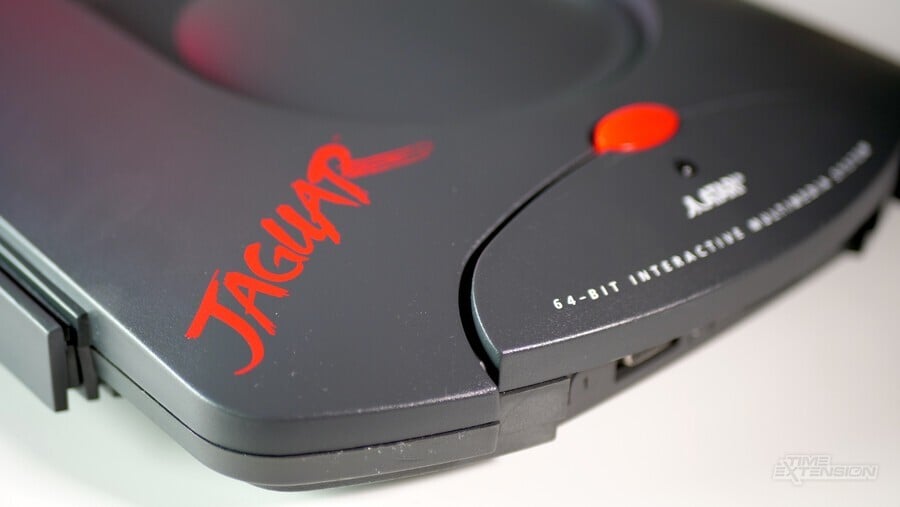
The Atari Jaguar has gone down in gaming history as a pretty significant failure. While it has some redeeming qualities – Jeff Minter's sublime Tempest 2000 being one of the more notable – the system was such a costly flop for Atari Corporation that it effectively sank the company.
However, even when the writing seemed to be on the wall for both Atari and the Jaguar, there was the briefest glimmer of hope in 1994, a year after the system had hit store shelves with a resounding thud (and the same year that Sega and Sony would launch their Saturn and PlayStation consoles in Japan).
Almost out of the blue, Sega and Atari inked a deal which appeared to give the latter firm a shot in the arm; Sega announced it would acquire $40 million worth of stock in Atari and pay an additional $50 million for a license to use some of its patents; most exciting of all – for long-suffering Jaguar owners in 1994, at least – there was the news that the two companies had agreed to cross-license up to five games per year, up to the year 2001.
How did this remarkable agreement come into being, though? Well, it's all to do with Atari's longevity. The company was one of the first to taste success in the realm of both video game hardware and software publishing via its smash-hit VCS / 2600 home console; it was also very active in arcades, producing a series of pioneering titles which did an awful lot of pathfinding in terms of game design and technology.

Atari co-founder Nolan Bushnell was savvy enough to ensure that Atari took out patents for a lot of these innovations, and it was this foresight which enabled the company (which, by this point, had become Atari Corp under the leadership of Commodore founder Jack Tramiel) to go after Sega in the '90s. In October 1993, Atari filed a lawsuit against Sega for infringement of one of its patents, taken out in 1984, which covered "horizontal scrolling on a video display." Atari also sought a preliminary injunction to stop the manufacture, use, and sale of Genesis and Game Gear hardware and software. In short, the company wasn't messing around; it was going for the jugular.
Atari's aggression worked in a roundabout way. While the court ruled that the financial harm caused by the injunction to Sega and its related dependents – including retailers, game developers, and peripheral manufacturers – would almost certainly outweigh the damage done to Atari by the alleged infringement of the patent, the motion was denied. Even so, the legal threat had spooked Sega, hence the aforementioned 1994 settlement.
"We're extremely pleased with this relationship, which has potential long-term benefits for both companies," said Sega of America's David Rosen at the time, perhaps putting a brave face on things. Atari president Sam Tramiel was understandably more bullish about matters when he spoke to EDGE magazine in March 1995. Bolstered by the infusion of cash and the knowledge that his firm could potentially strongarm other companies into signing deals, the Atari boss didn't rule out further legal action. "On the issue of patents, I can only say that we will maximise their value and will pursue whatever means are necessary to ensure that they are not being infringed upon," he said. "We have some precedents, and we look forward to more favourable outcomes." He even playfully batted back a question about the possibility of Nintendo games appearing on the Jaguar via a similar deal, answering, "Who knows what is possible in this time of detente?"
As part of the deal, Atari was presented with a list of games it could potentially license from Sega for release on its Jaguar console. While the possibility of Sonic coming to the 64-bit system was shot down almost instantly by Atari Europe's Bob Gleadow, it's striking just how many of the company's key franchises were offered up to Atari.
As you can see from these scanned documents, Sega was willing to licence the likes of Alex Kidd, Altered Beast, Streets of Rage, Phantasy Star, Golden Axe, Shinobi, Wonder Boy and ESWAT – although it should be noted that it was only offering the licence to port existing versions already available for either the Master System, Game Gear or Sega Genesis, rather than the permission to develop entirely new 64-bit games based on these properties. Out of an extensive list of options, Atari eventually whittled it down to OutRunners, Phantasy Star II, Alien Storm, Shinobi and Zaxxon 3D, with Gain Ground as a standby in the event that Zaxxon's source code could not be obtained.
It's not much of a spoiler to tell you that none of these games were ever released on the Jaguar. Shortly after the deal was signed, Sam Tramiel suffered a heart attack and control of Atari Corp was passed back to his ageing father, Jack. With the prospect of seriously challenging Sony, Nintendo and Sega in the upcoming next-gen console war getting slimmer each month, the elder Tramiel wisely decided it was time to get out of the video game business and brokered a reverse merger with hard drive maker JTS on July 30th, 1996. Atari, and the Jaguar, were dead.
It's tempting to ponder what could have been had Sam Tramiel not been hit with that health scare; would we have seen old Genesis and Master System games on the Jaguar? Could Sega have used the deal to leverage some of Atari's titles on the Saturn? We'll never know, but feel free to share your thoughts on what could have been by posting a comment below.
